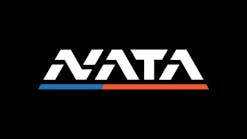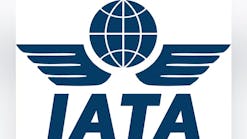UND Aviation Makes the Switch To Unleaded Fuel
Jul. 23—GRAND FORKS — UND has switched from using leaded to unleaded fuel for its fleet of aircraft in its commercial aviation program, the largest flight school in the nation to do so.
Robert Kraus, dean of UND's John D. Odegard School for Aerospace Sciences, said the college signed an agreement with the fuel provider last year, but delayed implementation until this year due to high prices for unleaded fuel.
"Previously, the price of unleaded 94 was higher than the leaded gas we were using," he said. "It didn't make sense to make the switch when the price differential was that big. As times have changed over the past year, those prices have come together a little more. The unleaded fuel has come down some, and the older, leaded fuel went up."
Kraus said smaller flight schools including Utah Valley University, and California Aeronautical University have made the switch to unleaded fuel, but "none other at the scale of flight hours that UND has."
Kraus said switching to unleaded fuel will be beneficial in the long run, for both the environment and the college's aircraft.
"It's not just price per gallon that we're looking at," he said. "In the long run, we think unleaded fuel will be better for the aircraft, because you don't have fouling of spark plugs or buildup in the engine. Using unleaded fuel is also better for the environment."
Kraus said the entirety of UND's aviation fleet is compatible with the 94 octane fuel, produced by Swift Fuels LLC, based in West Lafayette, Indiana. He also said UND has an advantage over other flight schools due to its ownership of the fuel delivery system at Grand Forks International Airport.
"Another reason we're able to make this switch is because we have control over our whole fuel system," he said. "We lease two large fuel storage tanks from the airport, and the fuel trucks are ours. Flight schools at other airports have to deal with fuel farms and different owners, so it's harder to do."
He also said that the school has completed all requisite inspections and certifications to use the fuel for its fleet.
"We have worked with our aircraft manufacturers, but also more importantly with the engine manufacturer, and they certified that our aircraft are ok to operate on unleaded fuel," Kraus said. "Ultimately our goal is to extend our inspection period longer, meaning we'll be able to do fewer inspections."
One challenge to large-scale implementation of unleaded aviation fuel is its lack of mass refining capability, Kraus said.
"If you compare it to beer, it is a craft beer at present," he said. "What needs to happen is that a major oil refinery picks it up. That is the goal of Swift Fuels — to license it out to a larger refinery and produce it on a larger scale."
Kraus also said that aviation fuel, both leaded and unleaded, is a relatively small component of major refineries' overall production.
"When you look at the amount of aviation fuel produced by refineries, it's a small blip in how much they make," he said. "Refineries just don't see that market as being worth making the switch. The hope is that more airports and flight schools make the switch, and a refinery will pick it up."
Kraus said an FAA mandate that all aircraft switch to unleaded fuel by 2030 may help incentivize refineries to increase production.
___
(c)2023 the Grand Forks Herald (Grand Forks, N.D.)
Visit the Grand Forks Herald (Grand Forks, N.D.) at www.grandforksherald.com
Distributed by Tribune Content Agency, LLC.

